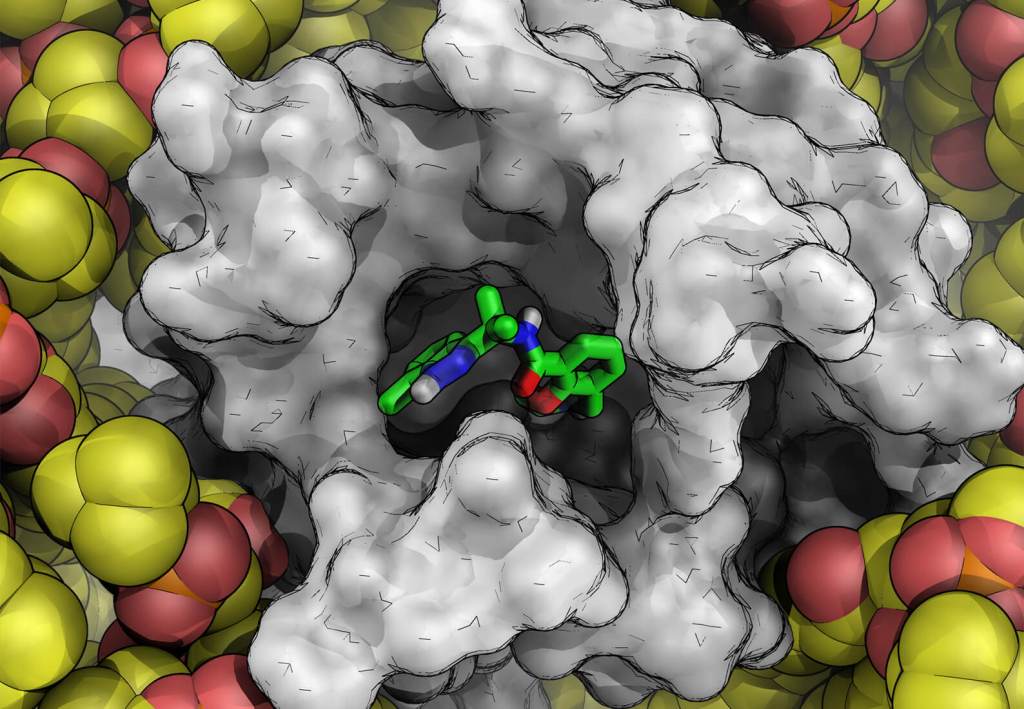 Event
Event
- Apr 23rd-25th, 2024
UTECH Europe 2024
Schrödinger is excited to be participating in UTECH Europe 2024 taking place on April 23rd – 25th in Maastricht, Netherlands.
 Event
Event
- Apr 25, 2024
Introducing PyMOL 3: Bring your biochemistry to life with 3D molecular visualization and movie making
Join us for an introduction to PyMOL 3, the latest advancement in 3D molecular visualization and animation software.
 Event
Event
- Apr 28th – May 1st, 2024
2024 AOCS Annual Meeting & Expo
Schrödinger is excited to be participating in the 2024 AOCS Annual Meeting and Expo taking place on April 28th – May 1st in Montréal, Québec, Canada.
 Webinar
Webinar
- May 9, 2024
Beyond AI: The importance of physics-based simulations in next generation food design webinar
Schrödinger will be presenting in a live webinar on Beyond AI: The importance of physics-based simulations in next generation food design. This virtual event will be hosted by IFT (Institute of Food Technologists) on May 9th and features Dr. Jeffrey Sanders, product manager at Schrödinger.
 Event
Event
- May 13th-17th, 2024
PEGS Boston 2024
Schrödinger is excited to be participating in the PEGS Boston 2024 conference taking place on May 13th – 17th in Boston, Massachusetts. Stop by our booth to speak with Schrödinger scientists.
 Event
Event
- May 14th-16th, 2024
Schrödinger Workshops: Accelerating Organic Electronics R&D with Digital Simulations and Enterprise Informatics
Join us for a free workshop day on May 15th at SID Display Week 2024 in Meeting Room 213. Schrödinger experts will walk you through guided demos and help you gain hands-on experience using digital simulations to expedite your organic electronics R&D.
 Event
Event
- May 21st-22nd, 2024
SAMPE 2024
Schrödinger is excited to be participating in the SAMPE 2024 conference taking place on May 21st – 22nd in Long Beach, California.
 Event
Event
- May 23, 2024
Schrödinger presentation & workshop: Advanced computational tools for small molecule drug discovery
We are pleased to invite you to Schrödinger’s Small Molecule Workshop & Presentation in the heart of Paris on May 23, 2024.
 Event
Event
- May 28th-31st, 2024
Educator’s Week 2024
Join us for a series of live webinar presentations from leading educators at top academic institutions, as well as talks by Schrödinger scientists.
 Event
Event
- Jun 11th-13th, 2024
22nd European User Group Meeting 2024
This in-person event will bring together a dedicated group of Schrödinger team members and customers from across Europe. We are preparing an interactive program including scientific presentations, workshops, and panel discussions, as well as ample opportunities for networking during breaks and evening social events. You will have the chance to enjoy the Fotografiska Museum in Stockholm alongside experiencing the city with a boat trip.
 Event
Event
- Jul 14th-17th, 2024
Institute of Food Technologists Conference
Schrödinger is excited to be participating in the Institute of Food Technologists Conference taking place on July 14th – 17th in Chicago, Illinois.
 Event
Event
- Oct 7th-10th, 2024
The Battery Show
Schrödinger is excited to be participating in the The Battery Show conference taking place on October 7th – 10th in Detroit, Michigan.

Latest insights from Extrapolations blog
Training & Resources
Online certification courses
Level up your skill set with hands-on, online molecular modeling courses. These self-paced courses cover a range of scientific topics and include access to Schrödinger software and support.
Free learning resources
Learn how to deploy the technology and best practices of Schrödinger software for your project success. Find training resources, tutorials, quick start guides, videos, and more.


